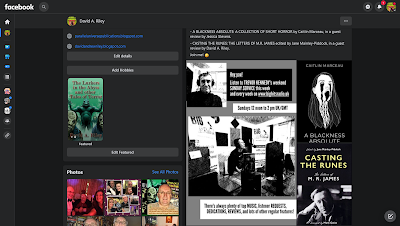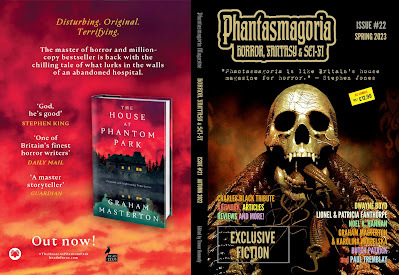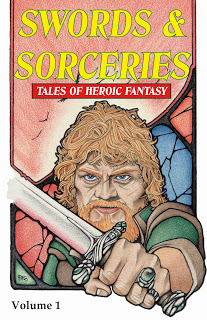David A. Riley's Blog, page 23
April 16, 2023
My story Welgar the Cursed is now available in Lyndon Perry's Swords & Heroes
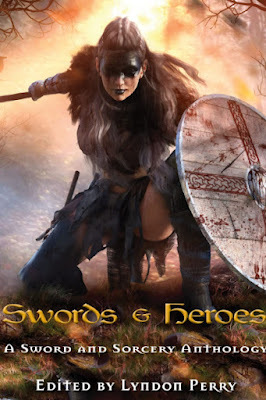
My story Welgar the Cursed (the sequel to The Dark Priestdom which appeared in the March issue of Savage Realms Monthly) is now available in Lyndon Perry's anthology collection Swords & Heroes, which has been published as a paperback and kindle ebook.
"Swords & Heroes – An Anthology of Sword and Sorcery – features 12 exciting tales of heroic adventure from some of the best writers in the genre today.Included are stories by Charles Gramlich, Gustavo Bondoni, Michael T. Burke, Teel James Glenn, Tom Doolan, Nancy Hansen, Tim Hanlon, Frank Sawielijew, Cliff Hamrick, J. Thomas Howard, David A. Riley, and Adrian Cole; along with a foreword by Jason M Waltz as well as a roundtable discussion of the current state of sword and sorcery."
April 12, 2023
Lucilla - serialised in Bewildering Stories - available to read free online

My story Lucilla was published last year in Bewildering Stories, serialised in 11 parts. It is available to read online free from this link.
April 11, 2023
Independent Author Spotlight: David A. Riley

Today I am the subject of DMR Books' Independent Author Spotlight. You can read it all on this link.
April 9, 2023
My S&S Story The Dark Priestdom is in the latest issue of Savage Realms Monthly
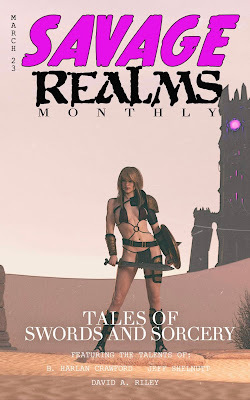
I am pleased my 10,000 word sword and sorcery story The Dark Priestdom is available now in the latest issue of Savage Realms Monthly (issue No 19, March 2023).
This story features two ongoing characters: Nadrain the Storyteller and Welgar the Northerner.
Nadrain first appeared in Summer of Sci-Fi & Fantasy, edited by Dustin Bilyk in 2022 in The Storyteller of Koss.
Welgar's first appearance is as one of the two main characters in Ossani the Healer and the Beautiful Homunculus, which is still out awaiting acceptance for publication. There is also a sequel to The Dark Priestdom. Welgar the Cursed will be published this May in Swords & Heroes, edited by Lyndon Perry.
A fourth Welgar story, Mask of a Mad God, is currently out with a potential publisher. More about this and Ossani the Healer and the Beautiful Homunculus when either or both are accepted for publication.
My third ongoing character is Ossani the Healer, who made his first appearance in The Storyteller of Koss. Besides Ossani the Healer and the Beautiful Homunculus, he is the main character in Ossani's Slaves, which is another recent tale still out awaiting acceptance for publication.
More stories of all three characters and their occasional crossovers are planned for the future.
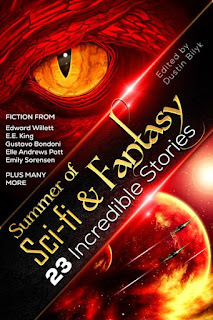
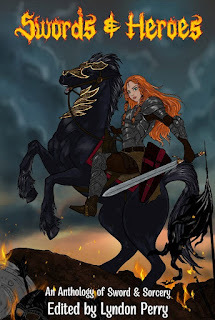
March 30, 2023
Submissions for Swords & Sorceries: Tales of Heroic Fantasy Will Open at Midnight Tonight
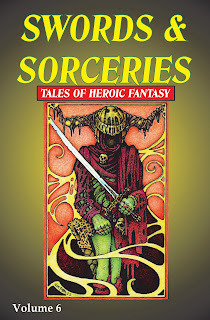 Submissions period for Swords & Sorceries Volume 6
Submissions period for Swords & Sorceries Volume 6 will open on the 1st April till the 30th April 2023 Payment is £25 per story regardless of length plus one contributor's copy of the paperback. The book will be published as a paperback and ebook. If a hardcover version is published we will pay an additional £25. Please send your submissions as attachments (doc, docx or rtf) headed "Submission - Swords & Sorceries 6" to:
paralleluniversepublications@gmx.co.uk
Please send only one submission - the one you consider the best fit for us.
Although we prefer original stories we are prepared to consider reprints. Just let us know where and when it was previously published.
You can send in simultaneous submissions, but let us know if your story is accepted elsewhere as soon as you can. Bear in mind you will only have to wait a maximum of one month and a week in which to receive a decision from us.
There is no limit on the size of submissions.
There is absolutely no need to tell us anything about yourself because the only thing that matters is the story. Everything else is irrelevant.
All rejections and acceptances will be sent out by email by the end of the first week in May. Please don't enquire about your submission before then.
AI has become an issue recently. Let's be clear on our policy with regard to stories written using AI: not only will they be rejected but, if proven to our satisfaction, the author using it will be blacklisted.
And good luck!
In the past we have received a number of stories that may be fantasy but are not swords and sorcery. If you are unsure what it is, why not get a better idea by checking out volumes 1 - 5. Saying that, swords and sorcery is a broad genre and we are more than willing to consider stories that stretch its limits, as we have in the past.
Also check our dedicated facebook group: Swords & Sorceries: Tales of Heroic Fantasy The contents of Volume One are:THE MIRROR OF TORJAN SUL - Steve LinesTHE HORROR FROM THE STARS - Steve DilksTROLLS ARE DIFFERENT - Susan Murrie MacdonaldCHAIN OF COMMAND - Geoff HartDISRUPTION OF DESTINY - Gerri LeenTHE CITY OF SILENCE - Eric Ian SteeleRED - Chadwick GintherTHE RECONSTRUCTED GOD - Adrian ColeThe cover and all the interior artwork is by Jim Pitts. amazon.co.uk
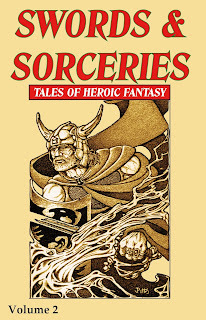
The contents of Volume 2 are:
The Essence of Dust by Mike Chinn
Highjacking the Lord of Light by Tais Teng
Out in the Wildlands by Martin Owton
Zale and Zedril by Susan Murrie Macdonald
The Amulet and the Shadow by Steve Dilks
Antediluvia: Seasons of the World by Andrew Darlington
A Thousand Words for Death by Pedro Iniguez
Stone Snake by Dev Agarwal
Seven Thrones by Phil Emery
The Eater of Gods by Adrian Cole
Illustrations by Jim Pitts.
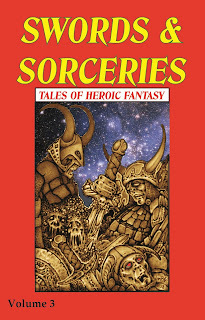
The contents of Volume 3 are: Sorcerous Vengeance by Lorenzo D. Lopez Seal Snatchers of Jorsaleem by Tais Teng When the Gods Send You Rats by Chadwick Ginther Mother's Bones by Carson Ray In the Lair of the Snake-Witch by Darin Hlavaz The Rains of Barofonn by Mike Chinn Wardark by Craig Herbertson The Foliage by Rab Foster In the Lair of the Moonmen by Jon Hansen Sailing on the Thieves' Tide by Adrian Cole Illustrations by Jim Pitts.
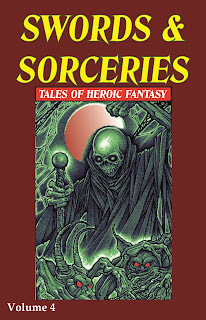
Swords & Sorceries: Tales of Heroic Fantasy Volume 4 contains eleven tales:
In the Iron Woods by Dev Agarwal
My People Were Fair and Wore Stars in Their Hair by Andrew Darlington
At Sea by Geoff Hart
The Flesh of Man by Frank Sawielijew
City at the Mouth of Chaos by Adrian Cole
In the Belly of the Beast by Edward Ahern
The Tracks of the Pi Nereske by Wendy Nikel
Slaves of the Monolith by Paul D. Batteiger
The Green Wood by David Dubrow
Demonic by Phil Emery
The Whips of Malmac by H. R. Laurence
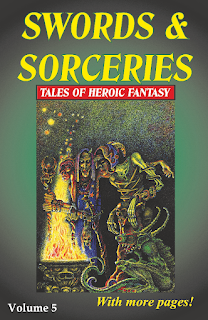
Swords & Sorceries: Tales of Heroic Fantasy Volume 5 contains eleven tales:
The contents are:
The Rotted Land by Charles Gramlich
Skulls for Silver by Harry Elliott
For the Light by Gustavo Bondoni
People of the Lake by Lorenzo D. Lopez
Free Diving for Leviathan Eggs by Tais Teng
The Black Well by Darin Hlavaz
Degg and the Undead by Susan Murrie Macdonald
The Mistress of the Marsh by David Dubrow
Silver and Gold by Earl W. Parrish
Bridge of Sorrows by Dev Agarwal
Prisoners of Devil Dog City by Adrian Cole
March 8, 2023
Romero's Children reprinted in the latest issue of Phantasmagoria
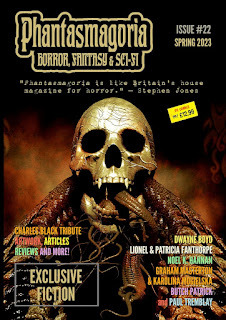 My science fiction zombie tale Romero's Children has been reprinted in the latest issue of
Phantasmagoria
magazine.
My science fiction zombie tale Romero's Children has been reprinted in the latest issue of
Phantasmagoria
magazine. March 7, 2023
Book review: Leviathan Wakes: Book 1 of The Expanse

LEVIATHAN WAKES: BOOK 1 OF THE EXPANSE
James S. A. Corey
One of the best science fiction series ever shown on TV, The Expanse is based on a sequence of eight novels by James S. A. Corey, pen name of Daniel Abraham and Ty Franck, the first of which is Leviathan Wakes.
Having enjoyed watching The Expanse, I was curious how closely it followed the books. So far as Leviathan Wakes is concerned I am not disappointed. Covering the events portrayed in the first series of The Expanse, anyone who has watched it will be familiar with the main characters and events. For me, though, the most interesting aspect was how the book helped to fill in all those extra details about the characters and their lives which it was impossible to portray on TV without slowing it down. And also, of course, and perhaps even more importantly, the additional insights into the social, economic and political situations that human civilisation has to grapple with after it has expanded into the rest of the Solar System, with the successful colonisation of Mars and human habitations strung across the Asteroid Belt and on many of the moons of the outer planets.
It is a complex and frighteningly fragile civilisation. And, for all the technological advances humanity has made during its colonisation of the Solar System, it takes little to steer it towards a self-destructive war between the various factions: Earth, Mars and the Belt all have reasons to distrust each other, especially those millions who live in the Belt and have grown to resent what they perceive as exploitation by those who they disparagingly call the Inners (those who live on the inner planets of the Solar System, i.e. Earth and Mars).
Throw into this already volatile mix an alien “protomolecule” with the terrifying ability to take over and alter biological tissue into something either hideously monstrous or, maybe even more terrifying still, into the next, almost godlike state which an alien civilisation many millions of lightyears from Earth achieved umpteen years ago. It was this unknown race that sent the protomolecule on a collision course with Earth with the intention of altering life there into something similar to their own, only for it to be accidentally drawn aside by the gravitational pull of Saturn onto one of its moons, where it has only recently been discovered. This is the catalyst that brings about death, destruction, deceit and war to the Solar System. James Holden and his small crew aboard the Rocinante and alcoholic Belter cop Detective Miller find themselves embroiled in a tug of war over the fate of wayward heiress Julie Mao, who is the key to the protomolecule and what it can do.
Leviathan Wakes is a fast-moving novel and every bit as good as the television series, and I am glad I decided to read it, even though the storyline was familiar to me. The added details and depth of character it provides to the leading protagonists was well worth it, not to mention an added clarity about the issues dominating life in this distant future, and I look forward to reading the rest of the series soon. As well, of course, of future series of The Expanse.
Leviathan Wakes is available as a paperback and ebook (Kindle).
Reviewed by David A. Riley
Review: The Last Closet: The Dark Side of Avalon by Moira Greyland
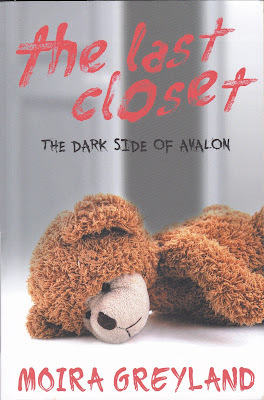
THE LAST CLOSET: THE DARK SIDE OF AVALON by Moira Greyland
Castalia House 2018, 528 pages
I am sure everyone who is into fantasy and science fiction will know the name of Marion Zimmer Bradley, winner of the World Fantasy Award for Lifetime Achievement and author of The Mists of Avalon and numerous Darkovernovels and stories, as well as editing the Swords and Sorceress anthologies. During her lifetime she was one of the biggest names in the genre, and even had a long-established magazine named after her: Marion Zimmer Bradley’s Fantasy Magazine.
Rumours of a darker aspect of the author’s life arose even during her lifetime, though, especially in regard to the activities of her second husband, world class coin expert Walter H. Breen who was banned from some science fiction conventions in the States from as early as the 1960s for his unwelcome interest in some of the young boys who attended them. He was first charged for these kind of offences in 1954, though back then he only received a probationary sentence. Later, his continual pursuance of vulnerable young boys who came within his sphere of influence resulted in his imprisonment.
Not only was Moira Greyland’s father guilty of openly indulging in sexual activity with minors, so did her mother, who molested her from when she was three to twelve.
The narrative contains a fascinating if horrifying insight into the lives of people who saw themselves as living alternate lifestyle from the hippy heydays of the 1960s in west coast America, with drugs, alcohol and sexual “freedom”. Just as Charles Manson exposed one dark side of this, so the Bradley/Breen lesbian/homosexual household revealed another. And despite Bradley’s success as a best-selling fantasy writer, the children of that family were exposed to activities and people that left them broken. Herself a fervent feminist and lesbian, Marion Zimmer Bradley was openly disappointed that her daughter, Moira, did not follow suit. In the end Moira freed herself from the narrow vision of life which her “free-thinking” parents tried to imprison her in and carved a life and career of her own as a harpist, actor and writer. As much as The Last Closet is an expose of the warped worldview of her parents, this is the saga of a girl who managed to keep her mind intact and broke free from the indoctrination her parents tried to impose on her. It’s the story of how Moira Greyland managed to survive her warped upbringing and rise above it.
“In my family the slightest dissent amounted to complete, unequivocal betrayal.”
The true horror of her family was the freedom of expression and tolerance for beliefs which her mother and father demanded for themselves was denied, derided and suppressed for anyone holding views contrary to theirs. In the end, the long-lasting damage her father’s activities were having on the young boys he seduced was too much for Moira Greyland and it was she who finally went to the police, and by doing so saved others from him in the future.
The final two hundred pages of this 528-page book are appendixes of court transcripts that substantiate the accusations against Moira Greyland’s parents and the complicity of Marion Zimmer Bradley in ignoring and, indeed, in condoning her husband’s paedophiliac activities.
Most biographies of writers tend not to be particularly fascinating but the revelations in this book are quite the opposite and well worth reading, if at the same time it’s disappointing to find that one of the “greats” of fantasy and science fiction could at the same time be such a horrific mother.
Reviewed by David A. Riley
February 26, 2023
Casting the Runes: The Letters of M. R. James
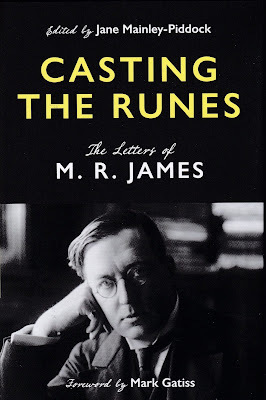 CASTING THE RUNES: The Letters of M. R. James
CASTING THE RUNES: The Letters of M. R. James Edited by Jane Mainley-Piddock
Foreword by Mark Gatiss
Unbound, 2023; Hardcover £25; kindle £15.99
Anyone expecting these letters to be in any way similar to those of H. P. Lovecraft or the recent Hippocampus collection of Clark Ashton Smith’s correspondence with August Derleth, in which, besides discussing subjects of particular interest to the writers, they write about their stories, may be disappointed that there is no mention within any of James’s letters about his ghost stories.
But, I hasten to add, don’t let this put you off, as they are an illuminating glimpse into the everyday life of the author, particularly helped by the notes added after every letter by Jane Mainley-Piddock, which, if anything, are even more interesting than the letters themselves, adding many much-needed background details and facts.
The letters are an easy read, usually written in a chatty, laid-back style. They start with his earliest letters in 1873 and go on to 1927, when he is Provost of Eton.
One of the longest notes goes on to discuss James’s fascination with Charles Dickens’s final, uncompleted novel The Mystery of Edwin Drood and his attempts to find a solution to it, as well as his fondness for detective stories, in particular Conan Doyle’s, which had an influence on the structure of his own ghost stories. Jane Mainley-Piddock’s notes, in fact, are worth the price of the book in themselves, with great insights into James and his stories.
Contrary to what I expected I read the entire volume of over 200 pages within just a few days and was never bored. Definitely something for anyone who loves the ghost stories of M. R. James and would like to read more by and about him.
It comes with a Foreword by James enthusiast Mark Gatis, and an Introduction by the editor.
Reviewed by David A. Riley
This review was read out by Trevor Kennedy on his weekly broadcast on Big Hits Radio UK on Sunday the 26th February 2023, and is also included in Phantasmagoria magazine, Spring 2023.
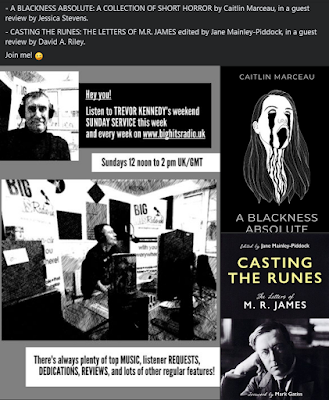

February 24, 2023
My review of Casting the Runes: The Letters of M. R. James to be read on Trevor Kennedy's Broadcast this Sunday
My review of Casting the Runes: The Letters of M. R. James, edited by Jane Mainley-Piddock will be broadcast on Trevor Kennedy's radio show this Sunday on Big Hits Radio UK between 12 noon and 2 p.m.
It will also be included in the next issue of Phantasmagoria, which will be available towards the end of next week.
